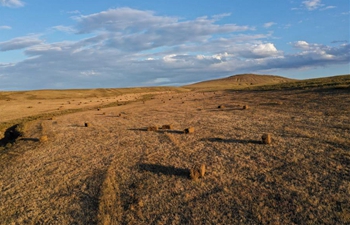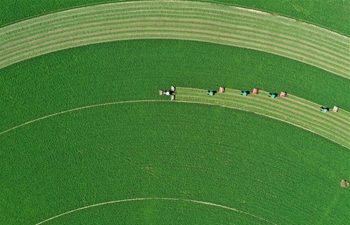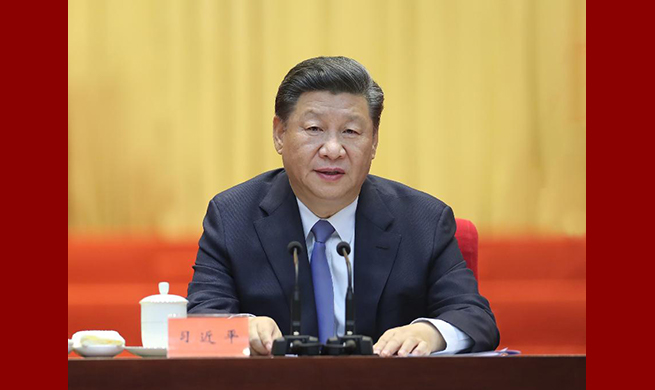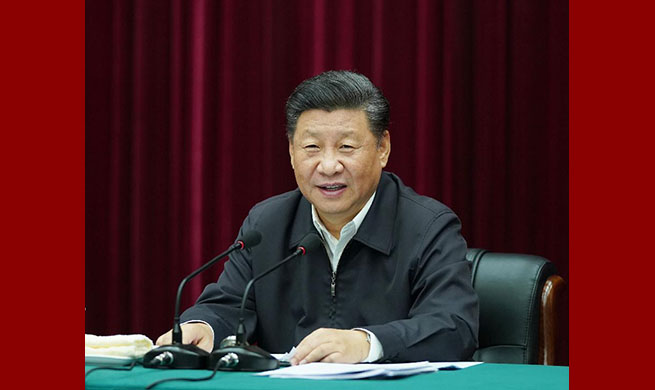by Olatunji Saliu
ABUJA, Sept. 21 (Xinhua) -- The temporary closure of Nigerian land borders due to massive smuggling is already yielding the desired result, Nigerian President Muhammadu Buhari said on Friday.
"After many years of diplomacy and aggressive regulatory oversight which yielded few results, we decided to close our land borders for a limited time to assess the impact of this measure," Buhari told top players of the organized private sector after a meeting in Abuja.
"Within a few short weeks, we are already seeing a decline in the volumes of counterfeit smuggled goods in some of our major markets across the country," he said.
The Nigerian authorities had closed the borders with Benin about a month ago and Niger more recently, as a measure toward tackling the challenge of smuggling.
Buhari said the closure was necessitated by the lack of adherence to the business ideals by various stakeholders which was detrimental to the country and its people.
He noted most of these substandard and illegal items were smuggled through the land borders.
"We have all heard stories about the dangerous, and sometimes, the fatal impact of fake drugs and foods on our citizens. We have also seen how fake electrical items have led to fires in homes and markets, thereby destroying lives and properties," the Nigerian leader said.
The president said the government would be strict in ensuring that everyone played by the rules when it comes to trade and business activities that are central to Nigeria's economic development.
"Unfortunately, in recent times, many traders simply do not play by the rules. Our markets are flooded with smuggled and counterfeit goods. By these selfish practices, we help keep foreign factories working while closing ours," Buhari said.
"This validates our action as a government when we insist that the African Continental Free Trade Agreement (AfCFTA) must not only promote free trade but legal trade of quality made-in-Africa goods and services," he added.
Earlier this week, the Economic Community Of West African States (ECOWAS) parliament had called on Nigeria to reverse the decision, saying the recent closure of the Nigerian borders with west African neighbors might hamper the implementation of the free trade movement within the sub-region.
In addition to that, the ECOWAS parliament said this border closure will continue to pose a threat to the implementation of the protocol on the free movement of persons within the region at a time when Africa was working to intensify efforts for the effective abolition of barriers within the member-states, the statement said.
The regional bloc's parliament also said this is a hindrance to the achievement of the regional bloc's main objective, which includes "achieving the creation of a prosperous, borderless West African region where peace and harmony prevail."
"The ECOWAS Parliament calls for compliance with Community provisions and thus calls for the reopening of borders and a coordinated fight against smuggling in the region," the statement said. "The root causes of this recurrent situation must be studied with a view to finding a permanent solution."
It further urged the Nigerian government to find a permanent solution to the challenge of smuggling, rather than closing the borders, which, the ECOWAS parliament added, was not a lasting solution.













